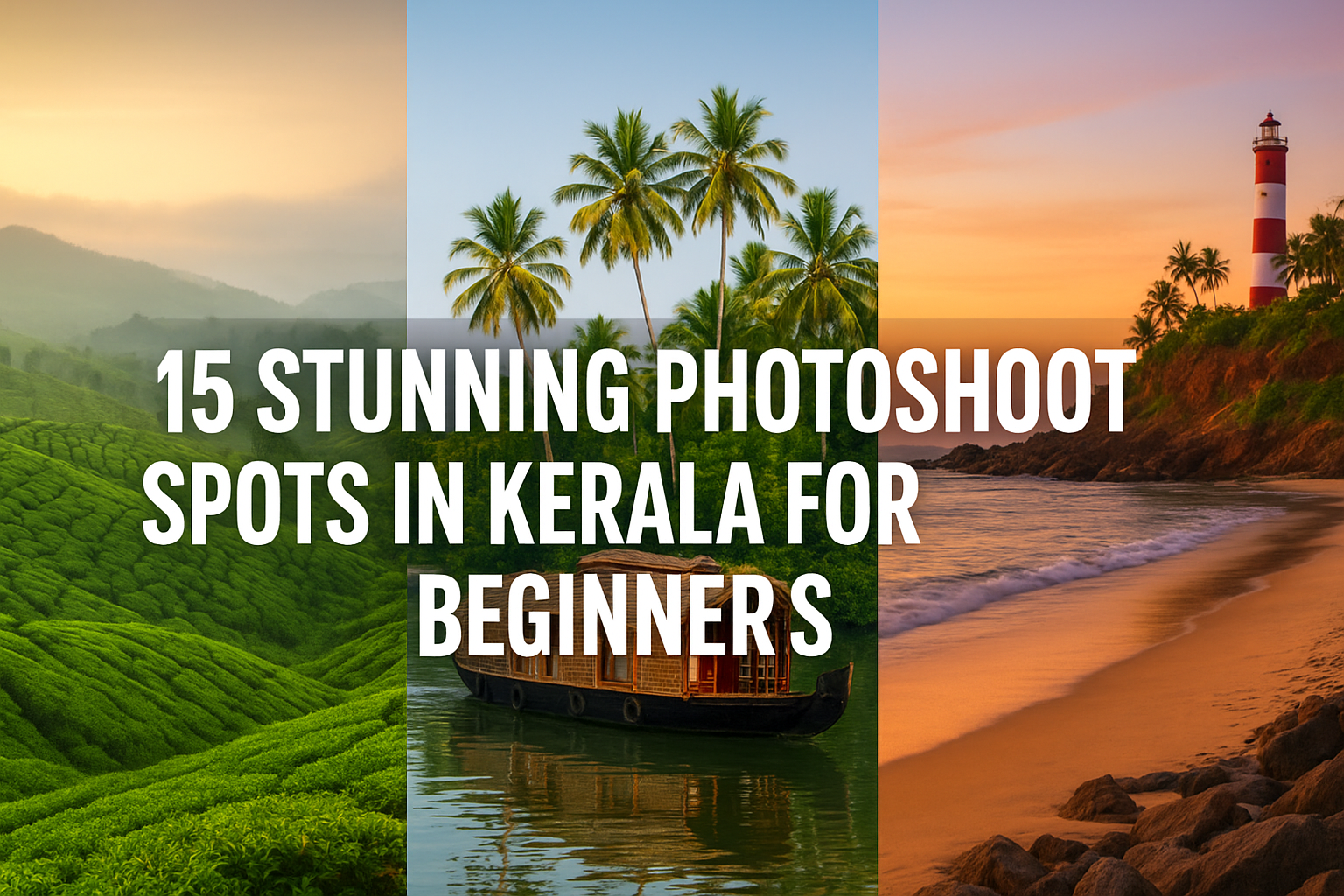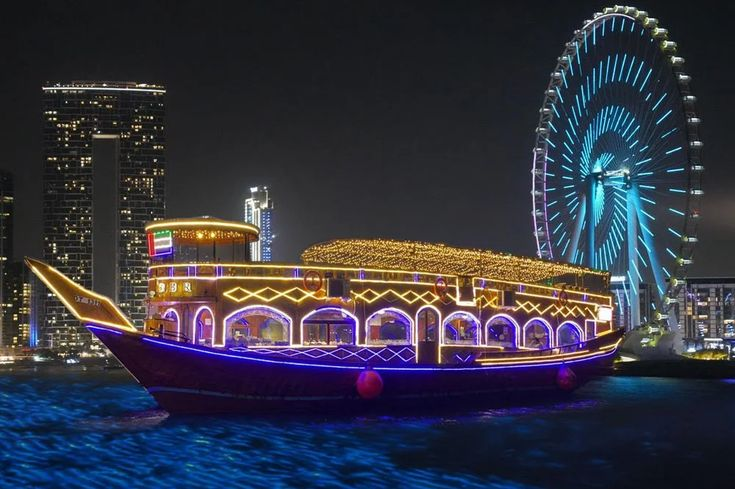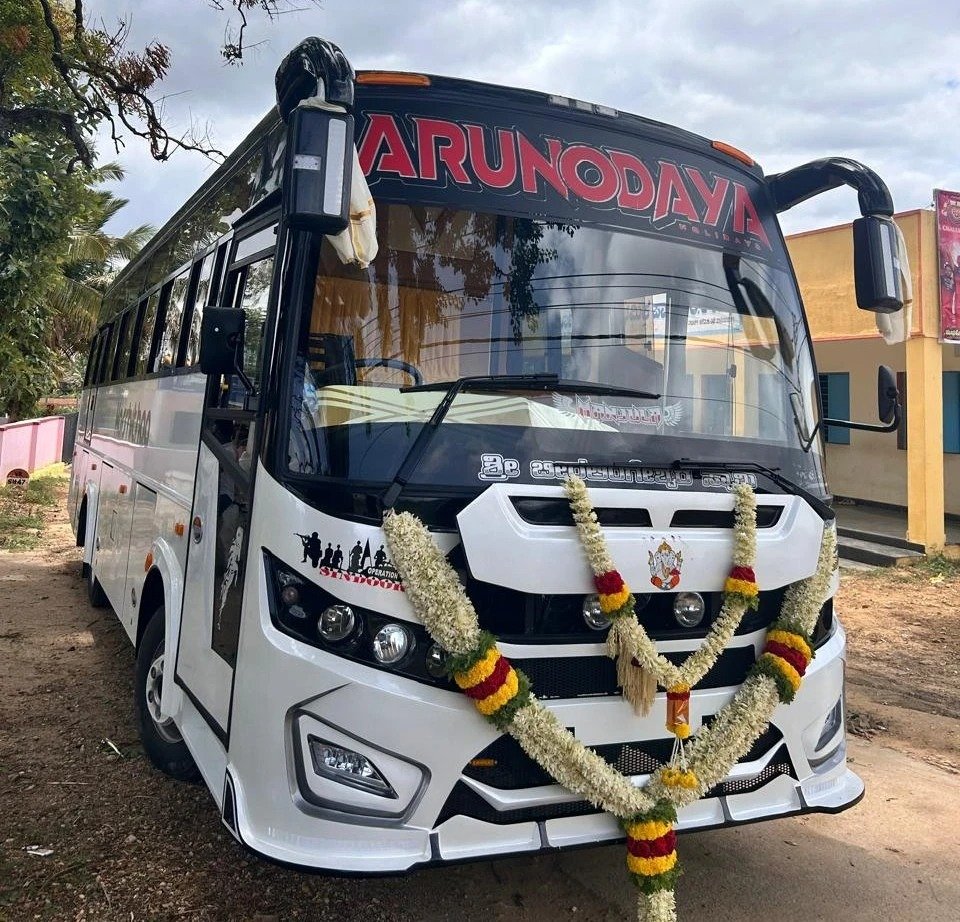Introduction to Kerala: God’s Own Country
Kerala, often referred to as ‘God’s Own Country,’ is a state located on the southwestern coast of India. Its unique geographical features, combined with a rich cultural tapestry, make it a premier destination for travelers from around the world. The state stretches along the Malabar Coast, with the Arabian Sea to the west and the Western Ghats, a mountain range, to the east. This strategic positioning gifts Kerala with a diverse array of landscapes that cater to various tourist preferences.
The coastal belt of Kerala is famed for its pristine beaches. Varkala and Kovalam are among the most popular, offering golden sands and tranquil waters that attract tourists seeking relaxation and water sports alike. Moving inland, the iconic backwaters of Kerala present a serene network of lakes, canals, and rivers, best experienced through a traditional houseboat cruise in places like Alleppey and Kumarakom. These experiences offer a glimpse into the region’s unique aquatic culture.
Beyond the coast and backwaters lie Kerala’s lush hill stations. Munnar, Wayanad, and Thekkady are renowned for their tea, coffee, and spice plantations, as well as their cooler climates. These hill stations provide a refreshing retreat from the tropical heat, with opportunities for trekking, wildlife spotting, and exploring picturesque landscapes. The Western Ghats are not only a haven for flora and fauna but also home to several wildlife sanctuaries and national parks, such as Periyar and Silent Valley, which offer rich biodiversity and thrilling safari experiences.
Kerala’s climate is predominantly tropical, with a monsoon season that enhances the state’s lush greenery. This climate contributes to its agricultural prosperity, which in turn, influences the local cuisine and culture. The cultural significance of Kerala is deeply rooted in its history, traditions, and festivals. From the classical dance form of Kathakali to the grand celebrations of Onam, the state’s cultural vibrancy is palpable and engaging for visitors.
In essence, Kerala’s diverse landscapes, favorable climate, and rich cultural heritage collectively establish it as an enticing travel destination, aptly titled ‘God’s Own Country.’
Must-Visit Destinations in Kerala
Kerala, often referred to as “God’s Own Country,” boasts an array of must-visit destinations, each offering unique experiences and breathtaking landscapes. Munnar, a picturesque hill station, is renowned for its sprawling tea gardens, mist-covered hills, and pleasant climate. Visitors can explore the Tata Tea Museum, hike through Eravikulam National Park, or enjoy a serene boat ride at Mattupetty Dam. The best time to visit Munnar is from September to March, when the weather is cool and pleasant.
Alappuzha, also known as Alleppey, is a haven for those looking to experience the famed backwaters of Kerala. Cruising on a houseboat through the intricate network of canals, rivers, and lakes is a quintessential Kerala experience. The town is also known for its coir industry and the annual Nehru Trophy Boat Race. The ideal time to visit Alleppey is between November and February when the weather is perfect for backwater exploration.
Kochi, or Cochin, is a vibrant city that seamlessly blends the old with the new. The historic Fort Kochi area is dotted with colonial-era buildings, Chinese fishing nets, and the iconic St. Francis Church. The city’s cultural richness is further highlighted by the Mattancherry Palace, also known as the Dutch Palace, and the Jewish Synagogue in the Jew Town area. To experience Kochi at its best, plan your visit from October to March.
Thekkady is synonymous with wildlife and adventure. Home to the Periyar National Park, it offers a chance to spot elephants, tigers, and a variety of bird species. The Periyar Lake, situated at the heart of the park, provides a unique perspective of the wildlife through boat safaris. Adventure enthusiasts can embark on trekking, bamboo rafting, and nature walks. Thekkady is best visited from September to April.
Wayanad, with its lush green landscapes and rich history, is a treasure trove for nature lovers. Key attractions include the Edakkal Caves, known for their ancient petroglyphs, and the serene Pookode Lake. The region is also famous for its wildlife sanctuaries and picturesque waterfalls like Meenmutty and Soochipara. October to May is the best time to explore Wayanad.
Kovalam, a coastal town, is famous for its pristine beaches and lively atmosphere. The crescent-shaped coastline is divided into three main beaches: Lighthouse Beach, Hawah Beach, and Samudra Beach. Visitors can indulge in water sports, Ayurvedic treatments, and relish fresh seafood. The ideal time to visit Kovalam is from September to March, when the weather is ideal for beach activities.
Experiencing Kerala Backwaters
Kerala’s backwaters are a celebrated feature of this southern Indian state, offering a unique and tranquil escape into nature’s lap. The intricate network of lagoons, lakes, and canals forms a serene ecosystem that captivates every visitor. A quintessential way to experience these backwaters is through a houseboat cruise, a journey that encapsulates the essence of Kerala’s beauty and tranquility.
On a typical houseboat trip, one can expect a blend of comfort and authenticity. These houseboats, locally known as ‘kettuvallams,’ are equipped with modern amenities while retaining their traditional charm. Guests are treated to picturesque views of swaying palms, rustic villages, and lush paddy fields, all while drifting on the calm waters. The gentle lull of the houseboat, the chirping of birds, and the occasional sight of fishermen casting their nets create a mesmerizing ambiance.
Popular routes for a houseboat cruise include the waterways of Alappuzha and Kumarakom. Alappuzha, often referred to as the “Venice of the East,” is renowned for its labyrinth of canals and waterways. Meanwhile, Kumarakom, situated on the Vembanad Lake, offers a tranquil backdrop perfect for a serene retreat. Both locations provide ample opportunities for sightseeing and are well-equipped to cater to tourists seeking either short day trips or extended overnight journeys.
Engaging in activities such as fishing and birdwatching can further enrich your backwater experience. The backwaters are home to a variety of fish species, making fishing a popular pastime. For bird enthusiasts, the backwaters are a haven, with numerous migratory and resident birds gracing the skies and water edges. The Kumarakom Bird Sanctuary, in particular, is a hotspot for birdwatchers, offering glimpses of species like the Siberian crane and the kingfisher.
In essence, exploring the backwaters of Kerala provides a peaceful retreat into nature. Whether you are gliding through the waters on a houseboat, casting a fishing line, or observing exotic birds, the backwaters promise an unforgettable experience that epitomizes the tranquility and natural beauty of Kerala.
Kerala’s Rich Cultural Heritage
Kerala, often referred to as “God’s Own Country,” embodies a rich tapestry of cultural traditions that are deeply woven into its identity. This southern Indian state is renowned for its classical dance forms, which serve as a window into its historical and cultural ethos. Kathakali, characterized by its elaborate costumes and expressive makeup, is a dance-drama that narrates mythological stories through intricate movements and facial expressions. Mohiniyattam, known for its graceful and feminine style, offers a serene contrast, focusing on the delicate gestures and fluidity that depict tales of love and devotion.
Traditional music in Kerala is another vital aspect of its cultural landscape. The melodious strains of Carnatic music, often accompanied by instruments like the mridangam and veena, resonate during various cultural and religious events. Additionally, the state’s festivals are a vibrant celebration of its heritage. Onam, the harvest festival, is marked by grand feasts, floral decorations, and the iconic boat races. Vishu, the Malayalam New Year, signifies new beginnings and features the ritual of Vishukkani, where the first sight on the morning of Vishu is an auspicious arrangement meant to bring prosperity.
Kerala’s vibrant art and craft scene also contributes significantly to its cultural richness. The state is famous for its intricate coir products, exquisite murals, and traditional handloom textiles. These crafts not only reflect the artistic skills of the local artisans but also sustain age-old traditions passed down through generations.
Ayurveda and yoga hold a place of prominence in Kerala’s cultural heritage. The state’s wellness retreats are globally acclaimed, offering holistic healing practices that promote physical and mental well-being. Ayurvedic therapies, based on ancient Indian medicine, focus on balancing the body’s energies through herbal treatments, massages, and dietary adjustments. Yoga, with its emphasis on spiritual and physical practices, complements Ayurveda, making Kerala a sought-after destination for those seeking rejuvenation and wellness.
Kerala Cuisine: A Culinary Journey
Kerala’s cuisine is a vibrant tapestry woven with an array of flavors, spices, and ingredients that are unique to this enchanting region. The culinary traditions of Kerala are a testament to its rich history and cultural diversity, making it a fascinating destination for food enthusiasts. A journey through Kerala’s cuisine introduces you to staple dishes that epitomize the essence of this southern state.
One can’t discuss Kerala’s cuisine without mentioning the ubiquitous appam, a type of rice pancake with a soft, spongy center and crisp edges, often paired with savory stews or curries. Another staple is puttu, a steamed cylindrical rice cake layered with grated coconut, typically served with banana, sugar, or a spicy curry. Fish curry, known locally as “meen curry,” is a quintessential dish, featuring freshly caught fish simmered in a tangy tamarind and coconut milk gravy infused with a blend of aromatic spices.
The influence of Kerala’s historic spice trade is evident in its cuisine. The use of spices such as black pepper, cardamom, cloves, and cinnamon not only adds depth and warmth to the dishes but also reflects the region’s storied past as a significant player in the global spice market. The harmonious blend of these spices creates a symphony of flavors that is both bold and nuanced.
Kerala’s culinary repertoire includes a wide array of both vegetarian and non-vegetarian dishes. Vegetarian options like avial, a mixed vegetable curry with coconut and yogurt, and olan, a delicate pumpkin and cowpea dish, showcase the state’s ability to create complex flavors using simple, fresh ingredients. Non-vegetarian dishes, such as beef fry and Kerala-style chicken roast, highlight the diverse influences and robust flavors that characterize the region’s food.
Central to many Kerala recipes is the ubiquitous coconut, used in various forms such as grated, ground, milk, and oil. Its versatility enhances the texture and flavor of numerous dishes, making it a cornerstone of Kerala’s culinary identity.
For an immersive experience, travelers should not miss the opportunity to partake in must-try food experiences like the traditional Sadhya, a festive vegetarian banquet served on a banana leaf, or the popular seafood delicacies along the coastal regions. Additionally, Kerala hosts several food festivals, such as the Malabar Food Festival, which celebrate the region’s gastronomical heritage and offer visitors a chance to savor an array of local specialties.
Adventure and Outdoor Activities in Kerala
Kerala, often celebrated for its tranquil backwaters and lush greenery, is also a haven for adventure enthusiasts. This diverse state offers a myriad of outdoor activities that cater to thrill-seekers and nature lovers alike. From trekking in the majestic Western Ghats to the exhilarating water sports along its coastline, Kerala promises an adrenaline-packed experience.
Trekking in the Western Ghats is a must for any adventure lover. The Ghats, a UNESCO World Heritage Site, offer numerous trails that vary in difficulty, making them suitable for both novice and seasoned trekkers. Popular trekking destinations include Munnar, Wayanad, and the Agasthyakoodam peak. Each location provides breathtaking views, diverse flora and fauna, and an immersive experience in nature. Safety is paramount, so hiring a local guide and carrying essential gear is highly recommended.
Wildlife enthusiasts can embark on a safari in Periyar National Park, located in Thekkady. This expansive sanctuary is home to a variety of wildlife, including elephants, tigers, and numerous bird species. The park offers jeep safaris, guided nature walks, and bamboo rafting on Periyar Lake, each providing a unique perspective on the region’s rich biodiversity. Visitors should adhere to park guidelines and respect wildlife habitats to ensure a safe and enjoyable experience.
For those drawn to water-based adventures, Kerala’s extensive network of rivers and backwaters presents ideal conditions for activities like kayaking and bamboo rafting. Valiyaparamba and Alappuzha are popular spots for kayaking, where one can navigate through narrow canals and witness the serene village life. Bamboo rafting, especially in the Periyar Tiger Reserve, offers a peaceful yet thrilling experience as you glide through dense forest waterways.
Beach lovers can indulge in surfing along Kerala’s coastline. Kovalam and Varkala beaches are renowned for their surf-friendly waves. These beaches offer surf schools where beginners can take lessons, and experienced surfers can rent equipment. Safety measures, such as wearing life jackets and following local surf guidelines, are crucial to ensure a safe experience.
In essence, Kerala’s diverse landscapes and natural beauty provide an exceptional backdrop for adventure and outdoor activities. Whether trekking, wildlife spotting, or engaging in water sports, travelers can look forward to an unforgettable adventure in this enchanting state.
Accommodation Options in Kerala
Kerala, often referred to as “God’s Own Country,” offers a plethora of accommodation options catering to diverse budgets and preferences, making it an inviting destination for all types of travelers. From opulent luxury resorts to cozy budget-friendly guesthouses, the state ensures that every visitor finds a suitable place to stay.
For those seeking indulgence and comfort, Kerala boasts a range of luxury resorts and heritage hotels. These accommodations often feature state-of-the-art amenities, spa services, and fine dining experiences. Popular luxury resorts are predominantly located in regions like Kumarakom, Kovalam, and Munnar, where guests can enjoy stunning landscapes and serene surroundings.
Budget-conscious travelers can opt for guesthouses and budget hotels that offer essential amenities without compromising on comfort. These accommodations are widely available in tourist hotspots such as Kochi, Alappuzha, and Varkala, providing easy access to local attractions and activities.
Homestays present an excellent opportunity for travelers to experience the local culture and hospitality firsthand. Staying with a local family not only provides comfortable lodging but also offers an authentic taste of Kerala’s traditional lifestyle and cuisine. Homestays are dispersed throughout the state, with many located in picturesque areas like Wayanad and Thekkady.
For a unique and unforgettable experience, consider staying in a houseboat or treehouse. Houseboats, particularly popular in Alappuzha and Kumarakom, allow guests to explore Kerala’s famed backwaters while enjoying modern comforts. Treehouses, found in regions like Wayanad and Athirappilly, provide a distinctive stay amidst the lush greenery of Kerala’s forests.
When booking accommodations in Kerala, it is advisable to plan ahead and make reservations, especially during peak tourist seasons. Depending on the type of travel, different areas may be more suitable. Families may prefer the tranquil ambiance of Kumarakom or Kovalam, while honeymooners might enjoy the romantic settings of Munnar. Solo travelers often find the vibrant culture of Kochi appealing.
Some of the renowned accommodations in Kerala include the Taj Kumarakom Resort & Spa, The Leela Kovalam, and the Spice Village in Thekkady. Whether you’re looking for luxury, budget options, or something unique, Kerala’s diverse range of accommodations ensures a memorable stay for every traveler.
Travel Tips and Practical Information
When planning a trip to Kerala, it is essential to consider various practical aspects to ensure a smooth and enjoyable experience. The best time to visit Kerala is during the winter months, from October to March, when the weather is pleasant and conducive to exploring the lush landscapes. The monsoon season, from June to September, offers a unique charm with its verdant scenery, but it may not be ideal for all travelers due to heavy rainfall.
Kerala is well-connected by air, rail, and road. The primary international airports are located in Kochi, Thiruvananthapuram, and Kozhikode, making it convenient for international tourists. Domestic travelers can also use the extensive railway network or opt for state-run and private bus services for intercity travel. Within the cities, auto-rickshaws, taxis, and ride-sharing apps like Uber and Ola provide convenient transportation options.
Health and safety are paramount when traveling. It is advisable to carry a basic first aid kit, including any prescription medications. Ensure you stay hydrated, use mosquito repellent, and consume bottled or purified water to avoid any health issues. Kerala is generally safe for tourists, but it is always wise to stay vigilant and avoid isolated areas after dark.
Language can be a barrier, but most people in Kerala understand and speak English to some extent. Learning a few basic phrases in Malayalam, the local language, can enhance your interactions with locals and show respect for their culture.
When packing for Kerala, include lightweight, breathable clothing suitable for the tropical climate, comfortable walking shoes, and rain gear if traveling during the monsoon. Additionally, pack sun protection such as hats, sunglasses, and sunscreen.
Respecting local customs and etiquette is crucial. Dress modestly, especially when visiting religious sites, and always remove your footwear before entering temples. Sustainable and responsible tourism practices, such as minimizing plastic use, supporting local businesses, and respecting wildlife, can contribute positively to the environment and local communities in Kerala.



